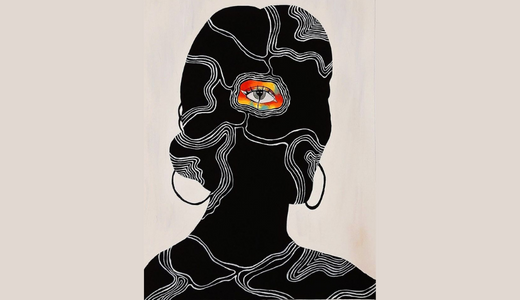
ADHD Across Different Life Stages : Symptoms, Impact, Risk Factors
KFTS BloggersShare
By Vanika
ADHD Across Different Life Stages : Symptoms, Impact, Risk Factors

What’s ADHD?
Attention Deficit Hyperactivity Disorder or ADHD is a neurodevelopmental chronic disorder that is often first diagnosed during childhood. People with ADHD may have persistent problems such as trouble paying attention, inability to control impulsive behaviour, and hyperactivity. Being inattentive or impulsive is something all of us experience but with someone with ADHD, it happens so often that it has a significant impact on their social skills, work, academics, and relationships.
Symptoms of ADHD
Signs of ADHD can often be seen in a person during childhood. Some common symptoms of ADHD are-
- Facing trouble concentrating on given tasks
- Fidgeting/ trouble sitting still
- Being easily distracted
- Forgetful about completing the given task
- Cutting off people when they are speaking
Impact on Children
The biggest impact of ADHD on children is the effect it has on their development and social skills. Kids are often hyperactive, impulsive, show a lack of interest in activities that require too much attention, and easily distracted. There is also a delay in picking up motor skills. Such kids, especially those with dominant hyperactive symptoms, end up being socially outcasted by their peers and such a hostile environment can fuel depression, anxiety, or anger issues in them.
Impact of ADHD on Teens/Adolescents
For some, ADHD can go unnoticed or undiagnosed during childhood. As they grow old, the resources for managing their symptoms grow smaller and smaller in size. The symptoms might even become less noticeable by the time they reach their teenage years but they will always face difficulty in managing multiple tasks together, participating in extracurricular activities, focusing on lectures, or controlling their restlessness. Inability to manage their life may lower their self-esteem and constant confusion. Teens with untreated ADHD are more likely to be involved in risky behaviour.
Impact on Adults
ADHD may get less severe during adulthood but the symptoms do not go away completely; the problems that arise may still be insignificant, like impulsive decision-making, but recurring impulsivity can be bothersome. Some other places where they may still find difficulty adjusting are procrastination, failing to pay attention, impulsive decision-making, and making impulsive decisions in situations where intact reaction is required.
Risk Factors of ADHD
Genetics plays a vital role in the development of ADHD, according to research. There is a constant debate about nature vs. nurture. Apart from that, some other possible causes according to scientists may be-
- Environmental risks during the early stages of pregnancy or at a young age
- Brain Injury
- Substance Abuse
- Premature Delivery
There is no cure available for ADHD currently but timely and effective treatment might help in reducing the symptoms and improve skills. It is commonly treated with therapy, training, medications, or a combination of all.
To know more about Autism Spectrum: An Overview read here
To know more about PCOS and Hirsutism: The Impact on Body Image and How to Love Yourself Anyway read here
References
http://www.mayoclinic.com/health/adhd/DS00275/DSECTION=causes
https://www.cdc.gov/ncbddd/adhd/facts.html
Tags: #AttentionDeficitHyperactivityDisorder #ADHD #Neurodevelopment #Disorder #Attention #Fidgeting #Trouble #Distracted

